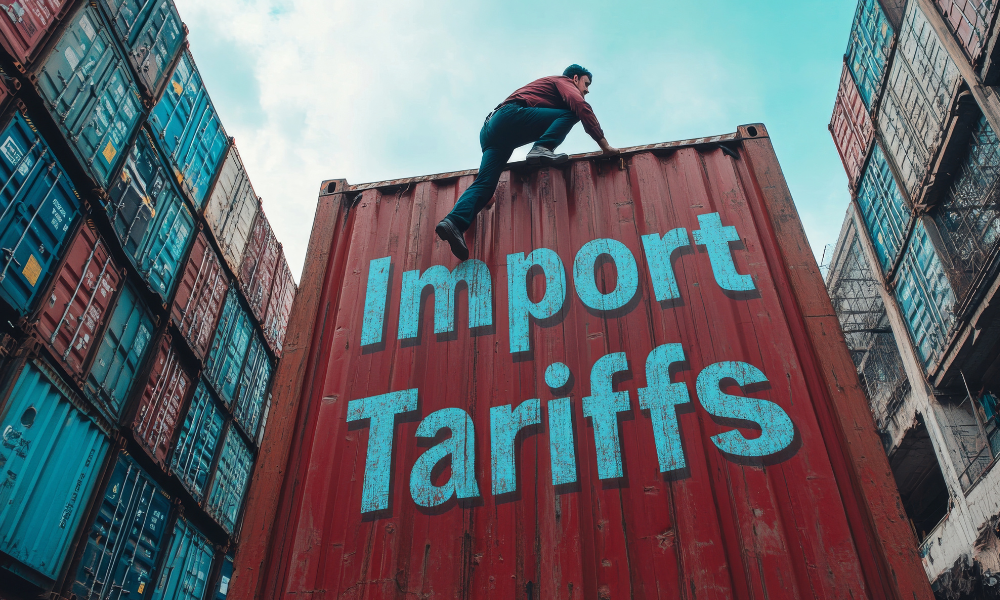

The second quarter of 2025 has been dominated by Trump’s tariffs; political, business, and market narratives have all been impacted. But today, many of them have been blocked.
A ruling late Wednesday by three judges acting for the US Court of International Trade said that the president’s use of a 1977 emergency law to bring in his ‘Liberation Day’ tariffs that upended global trade, was not appropriate and many of the tariffs are therefore void.
The Trump administration is expected to appeal, but for now, markets are reacting positively to a decision that has clipped the president’s wings and gives at least temporary relief to US international trade participants.
Tariffs are not dead in the water – that will likely be decided ultimately in an appellate court then the Supreme Court – and some tariffs are not affected by the court ruling such as those from Trump’s first term and levies on steel and some other sectors which were not imposed under the same legal framework. It’s worth stressing that it is the legal basis by which the tariffs have been imposed that has been ruled on rather than the legality of tariffs themselves.
But other levies, such as the 30% on imports from China, 25% on those from Canada and Mexico that fall outside USCMA, and 10% on most other countries’ goods sold to the US, could be stopped in the next two weeks.
The court ruling gives the administration 10 days to comply, but that’s a long time in politics and where there’s a will there’s a way. An unpredictable president is likely to find unpredictable solutions.
But what about the importance of tariff revenue to Trump’s “bigbeautiful bill”? Are Americans going to see their hopes of lower tax bills evaporate?
Goldman Sachs analysts don’t think so.
“This ruling represents a setback for the administration’s tariff plans and increases uncertainty but might not change the final outcome for most major US trading partners,” chief US political economist Alec Phillips stated in a client note. “For now, we expect the Trump administration will find other ways to impose tariffs.”
With approximately $200 billion expected from the tariffs, a similar figure to the deficit increase in 2026 that would result from the proposed fiscal package, Phillips believes the Trump administration will find another route to tariffs, adding that the tax agenda should endure anyway as lawmakers are not specifically including tariff revenue in their decision making.

By listening for what truly matters and where clients want to make a difference, advisors can avoid politics and help build more personal strategies.

JPMorgan and RBC have also welcomed ex-UBS advisors in Texas, while Steward Partners and SpirePoint make new additions in the Sun Belt.

Counsel representing Lisa Cook argued the president's pattern of publicly blasting the Fed calls the foundation for her firing into question.

The two firms violated the Advisers Act and Reg BI by making misleading statements and failing to disclose conflicts to retail and retirement plan investors, according to the regulator.

Elsewhere, two breakaway teams from Morgan Stanley and Merrill unite to form a $2 billion RIA, while a Texas-based independent merges with a Bay Area advisory practice.
Orion's Tom Wilson on delivering coordinated, high-touch service in a world where returns alone no longer set you apart.
Barely a decade old, registered index-linked annuities have quickly surged in popularity, thanks to their unique blend of protection and growth potential—an appealing option for investors looking to chart a steadier course through today's choppy market waters, says Myles Lambert, Brighthouse Financial.
